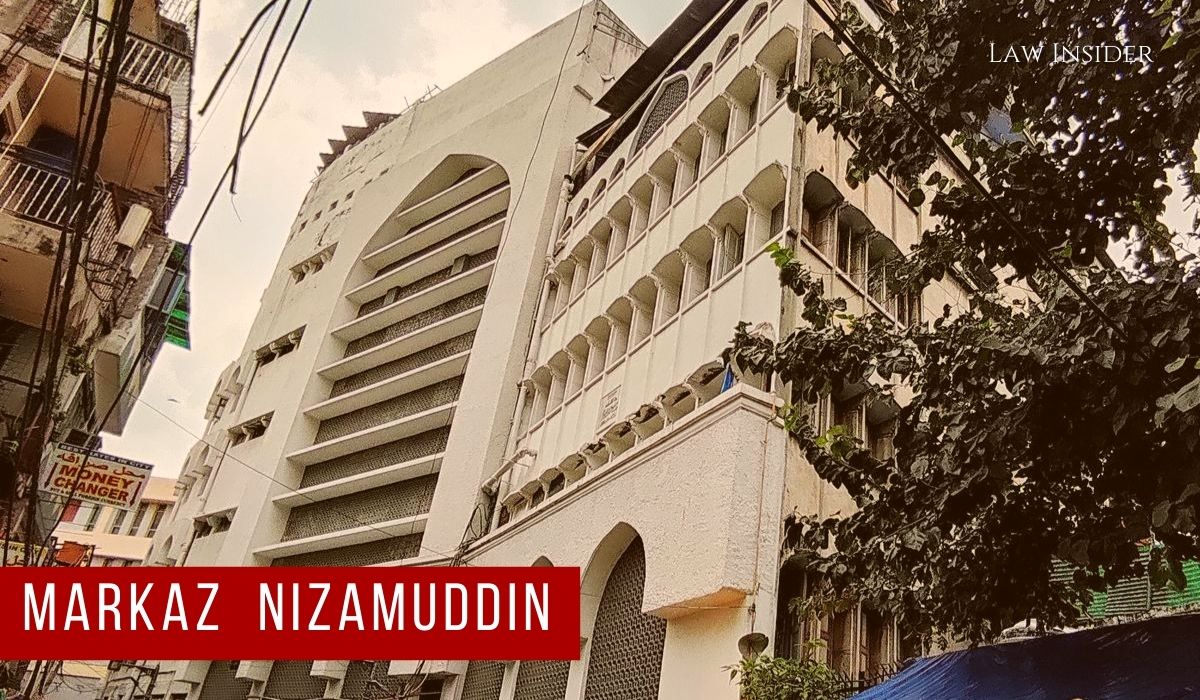Sakina Tashrifwala
Published on: 29 November 2022 at 23:19 IST
The Nizamuddin Markaz was shut down in March 2020 for hosting a Tabliqhi Jamaat congregation amid the Covid-19 outbreak, and the Delhi police informed the Delhi High Court that it has no issues with giving jamaat leader Maulana Saad the keys to the building.
The counsel for the Delhi Police argued that the agency had not been given the paperwork proving who was the rightful owner of the Nizamuddin Banglewali Masjid and that Maulana Muhammad Saad was the only person authorised to receive the keys.
While the police claimed in court that Saad had fled, a markaz management committee member asserted that Saad was indeed on the property and could be seen going to the agency to obtain the keys.
Justice Jasmeet Singh stated at the hearing, “Someone has had their possession taken away by you (the police). You give that person your possession back. Since the matter at hand is not a property ownership dispute, I am not making a decision on a FIR. You learn what needs to be done, but you hand over the keys. It is not yours to retain.”
The Nizamuddin Markaz, which includes a masjid, a madarsa, and a dormitory, was closed after the epidemic began, and the Delhi Waqf Board filed a suit with the high court asking for a directive to reopen it.
The high court issued an interim judgement in May enabling the reopening of some Markaz places that had been shut down after the Tablighi Jamaat meeting.
The federal government has expressed opposition to a full reopening of the premises in its affidavit.
The Delhi Waqf Board was ordered to furnish records pertaining to the ownership of the Nizamuddin Banglewali Masjid by police after they submitted an application earlier this month.
Rajat Nair, representative for the Delhi Police and the Centre, contended that the Delhi Waqf Act requires the ‘mutawali’—rather than the Delhi Waqf Board, which is the petitioner in this case—to step forward and assume ownership of the land because the original possessor has not yet done so.
The keys might be given back to the original individual, he claimed, but that person is not present.
The petitioner board’s senior counsel, Sanjoy Ghose, claimed that they are merely the waqf property’s custodians and that the waqf property belongs to the Almighty. The controlling committee can receive the keys, he said.
The high court asked police to investigate the property’s title after stating that it would not “Are you in control? What role have you assumed in taking possession? The Epidemic Diseases Act was used to record the FIR, although that has already expired.”
“Whoever was in possession at the time would have to file an action for possession if you took a property under the Epidemic Diseases Act and registered a FIR?” Judge questioned.
When the police’s lawyer claimed that Saad had lost the possession, the high court questioned where Saad was and why he was unable to go get the keys.
In response, the managing committee’s counsel indicated that Saad was in the markaz and that he could go get the keys from the police.
“The counsel for the respondent (police) indicates that the respondent will have no issue to handing over keys to Maulana Saad on presenting an indemnity bond in the manner requested by them,” the court noted in its judgement.
Additionally, it said that no paperwork would need to be provided for this reason. The Judge stated that, “Given the foregoing, the petitioner has decided not to pursue the petition further. The writ petition has been dismissed”
In its application, the police said that although the waqf board had submitted the petition, claiming to be the custodian and possessing the land, “no supporting document has been filed by the petitioner to claim locus or that the property is a waqf property.”
It stated that in order for appropriate orders to be made regarding the maintainability of the “claimed waqf property,” the rightful owner or possessor must be identified before the petition is dismissed.
In conjunction with the Tablighi Jamaat event staged at the markaz and the subsequent stay of foreigners there during the pandemic-induced lockdown in 2020, several FIRs were filed under the Epidemic Diseases Act, the Disaster Management Act, the Foreigners Act, and several penal code prohibitions.
The Delhi Waqf Board had filed a court petition last year asking for instructions to reopen the premises on the grounds that the markaz is still sealed despite ‘Unlock-1’ pandemic guidelines permitting religious buildings outside containment zones to be opened.
The Centre informed the court in its affidavit, which was confirmed by the Deputy Commissioner of Police, Crime, that it was “necessary and incumbent” to protect the markaz property because the investigation into the case filed for violating the COVID-19 protocols “involves nation’s diplomatic relationship with other countries and has cross-border implications.”
The waqf board had earlier claimed that the mosque, which was locked by the Delhi Police, should be unlocked as the Delhi Disaster Management Authority (DDMA) had already abolished all limitations that were put in place because of the epidemic. The waqf board was represented by counsel Wajeeh Shafiq.
On a report by the Nizamuddin station house officer, the Delhi Police’s crime section filed a FIR against seven people in March 2020, including the cleric, for allegedly violating the ban on large gatherings that was put in place to stop the coronavirus from spreading. Saad, trusts with ties to the Jamaat, and other individuals are the subject of a money laundering case brought by the Enforcement Directorate.

